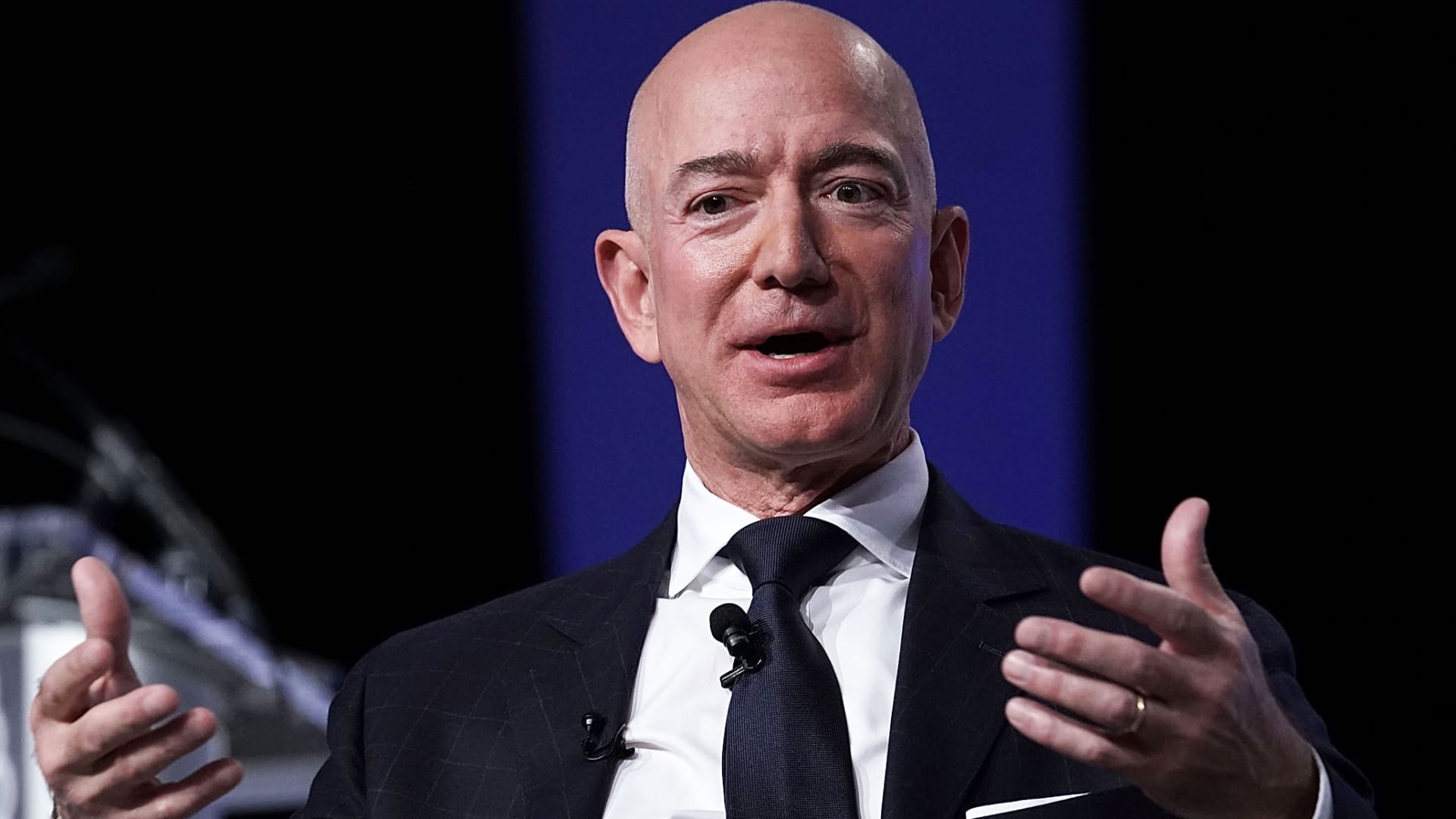Products You May Like
Some people have framed diplomas. Others have framed photos with celebrities. Jeff Bezos has a framed 16-year-old copy of Businessweek magazine.
On Wednesday, the Amazon founder tweeted a photo of the November 2006 magazine’s cover, which featured a photo of Bezos at age 42 behind the text, “Amazon’s Risky Bet.” The cover story was about why Wall Street executives doubted that Amazon Web Services, then a brand-new on-demand cloud computing service, would ever succeed.
“I have this old 2006 BusinessWeek framed as a reminder,” Bezos, now 58, wrote in the tweet. “The ‘risky bet’ that Wall Street disliked was AWS, which generated revenue of more than $62 billion last year.”
In 2006, Amazon was only worth a mere $10 billion, according to Businessweek – and investors and analysts were “losing confidence in Bezos’ promises.” The article called out Bezos for going on an ill-timed spending “binge,” noting that his investments in new technologies like cloud computing were up 52% since January of that year, while Amazon’s stock was down 20%.
Specifically, Businessweek deemed Amazon Web Services as “Bezos’ biggest bet since he and his wife, MacKenzie, drove west in 1994 to seek fame and fortune on the Net.”
Today, the cloud computing platform is known for helping revolutionize the world of online marketplaces, and is a huge factor behind Amazon’s current market capitalization of $1.08 trillion, as of Friday afternoon.
Last year, Amazon Web Services made $62.2 billion in revenue, according to the company’s annual filing. An earnings statement earlier this year shows that the platform been largely responsible for keeping Amazon profitable so far in 2022: AWS made $6.52 billion in operating income during Q1 of 2022, far outpacing Amazon’s total operating income of roughly $3.7 billion.
Businessweek’s analysis wasn’t entirely wrong. Amazon has built a reputation over the years for making big bets on new technologies, and using the profits from its successes to subsidize its failures.
In 2014, Amazon took a $170 million loss for unsold Firephones. In 2019, the company closed 87 pop-up stores and shut down its restaurant delivery service. Last year, it discontinued Dash Buttons, one-click buttons meant to be mounted around users’ homes for frequent reorders of products.
The failures don’t seem to phase Bezos, who often says that risks – and defeats – are the price of admission to success.
“We need big failures if we’re going to move the needle — billion-dollar scale failures,” Bezos said at Amazon’s re:Mars conference in 2019. “And if we’re not, we’re not swinging hard enough.”
Sign up now: Get smarter about your money and career with our weekly newsletter
Don’t miss:
Former Twitter CEO: The advice Jeff Bezos gave me a decade ago — that I still pass on today
